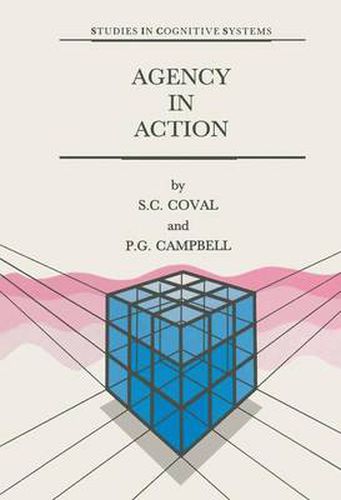Readings Newsletter
Become a Readings Member to make your shopping experience even easier.
Sign in or sign up for free!
You’re not far away from qualifying for FREE standard shipping within Australia
You’ve qualified for FREE standard shipping within Australia
The cart is loading…






When agency or intentional causation has occurred, the theory presented here identifies an object ascribable to the agent - his action - which, through its properties, reveals its intentional cause. Such a unified view of agency and action leads to unitary views of intention and the intentional end of all explanatory objects ascribable to agents. While at odds in these matters with the prevailing theories of action, the semantics of this explanatory theory is shown to better satisfy widely accepted criteria for a viable theory of action. The revelatory character of action and its essential reference to agency shows that action theory needs agency theory. To this end, a logic of practical rational agency is developed which is intended to be neutral between competing theories of mind. A sketch of the computer program, PRAGMA, is given which, on the basis of this model of agency and action, analyzes cases of agency in natural discourse. PRAGMA and its manual are available separately. This work should be of interest to theorists concerned with the fundamental practical rational structure of persons, their actions and the discourse appropriate to them: to philosophers and to political, legal, AI and economic theorists.
$9.00 standard shipping within Australia
FREE standard shipping within Australia for orders over $100.00
Express & International shipping calculated at checkout
Stock availability can be subject to change without notice. We recommend calling the shop or contacting our online team to check availability of low stock items. Please see our Shopping Online page for more details.
When agency or intentional causation has occurred, the theory presented here identifies an object ascribable to the agent - his action - which, through its properties, reveals its intentional cause. Such a unified view of agency and action leads to unitary views of intention and the intentional end of all explanatory objects ascribable to agents. While at odds in these matters with the prevailing theories of action, the semantics of this explanatory theory is shown to better satisfy widely accepted criteria for a viable theory of action. The revelatory character of action and its essential reference to agency shows that action theory needs agency theory. To this end, a logic of practical rational agency is developed which is intended to be neutral between competing theories of mind. A sketch of the computer program, PRAGMA, is given which, on the basis of this model of agency and action, analyzes cases of agency in natural discourse. PRAGMA and its manual are available separately. This work should be of interest to theorists concerned with the fundamental practical rational structure of persons, their actions and the discourse appropriate to them: to philosophers and to political, legal, AI and economic theorists.